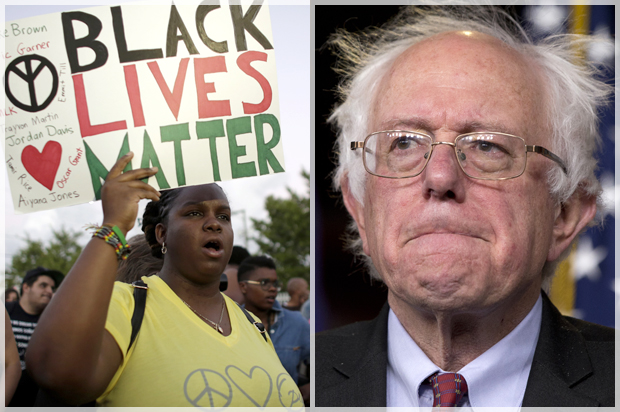The New Yorker is out with a new in-depth profile of Democratic presidential candidate Bernie Sanders, featuring interviews with the senator, his wife, his former chief of staff, and numerous close friends in an effort to examine his rapid rise in the polls.
In “The Populist Prophet,” Margaret Talbot goes on the campaign trail with Sanders and speaks with supporters to understand his appeal. What she discovered can best be summarized by this passage:
Sanders’s message is particularly potent for young people who are struggling financially. Several weeks after the rally, I wrote to Dawn York, and she said that she had been thinking about “how refreshing it was to have someone point out to us that, as hardworking Americans, some things aren’t a privilege, they are a right. . . . I’m self-employed, I started my own business three and a half years ago, and my husband works full-time for Whole Foods—and we barely get by. We own a home, we both graduated from college, and we work more than forty hours a week, and we can barely put oil in our heating tanks in the winter. We have no savings and no way to financially handle any hiccups that may come our way. And I had to be reminded that it shouldn’t be that way.”
Here are four other notable nuggets from the New Yorker profile:
Sanders can do a selfie but he can’t do small talk
Describing the “counterintuitive Sanders charm,” Talbot wrote of Sanders’s mastery of the selfie while on the campaign trail while forgoing niceties and small talk:
He also understands the necessity of the selfie dance, maneuvering quickly into place and smiling briefly. Sanders does not excel, however, at the middle ground of casual, friendly conversation. He has no gift for anecdote. When talking to voters, Hillary Clinton has perfected the head-cocked semblance of keen interest; it’s clear when Sanders becomes bored.
But close friend and University of Vermont political scientist Garrison Nelson described a Sanders who was always keen to stop and speak to any Vermonter who stopped him in the streets of Burlington — even critics.
On his initial handling of Black Lives Matter and racial injustice
Talbot spoke with Sanders in his Senate office about his much-publicized encounters with some Black Lives Matter activists earlier this summer and about how his campaign has adjusted to the critique that it overlooked specific racial inequities in favor of a focus on broader economic inequality.
“I plead guilty — I should have been more sensitive at the beginning of this campaign to talk about this issue,” Sanders admitted. “The issues these young people raised are enormously important,” he said.
He then went on to recount watching the arrest video of Sandra Bland, the young African-American woman who mysteriously and suddenly died in a Texas jail cell, as a pivotal moment of recognition for him. “It impacted my night’s sleep,” he said. “I don’t sleep that great, and it made it even worse.”
“It’s hard to imagine if Sandra Bland were white she would have been thrown to the ground and assaulted and insulted,” Sanders argued.
His old roommate says Sanders has always had a “prophetic sensibility”
Richard Sugarman, a housemate of Sanders in the 1970s recalls that the longtime activist always had a “devotion to the ethical part of public life in Judaism, the moral part.” Sanders, he observed, although hardly an observant Jew, felt endowed with “a prophetic sensibility,” rooted in the religion:
Sugarman says that his friend would often greet him in the morning by saying, “We’re not crazy you know,” referring to the anger they felt about social injustices. Sugarman would respond, “Could you say good morning first?”
Sanders credits his high school cross country experience with instilling in him lifelong stamina
Altough Sanders has notably shied away from relying on his personal biography to cast himself as more relatable to voters, opting instead to stay focused on policy issues, he did reveal to Talbot that his experience on James Madison High School’s cross country team “accounts for some of his formidable stamina today.”
Sanders’s Brooklyn high school is the same one attended by Supreme Court Justice Ruth Bader Ginsburg and New York Senator Chuck Schumer.

